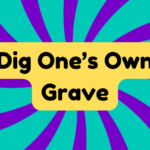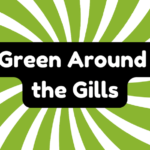Off-grid living means going off the traditional utility grid to embrace self-sufficiency and sustainability. It originated from a need for independence when services were limited, particularly in the 1970s during a growing environmental awareness. For example, you might install solar panels or collect rainwater to meet your energy and water needs. While it sounds appealing, challenges like food preservation and resource management arise. People often romanticize it, but real commitment is essential. Want to understand more about its relevance today and the practical steps to think about? There's a lot to explore that might surprise you.
Synonyms
When you think of living off-grid, terms like "self-sustaining" and "independent" often come to mind. This lifestyle isn't just about disconnecting from the grid; it's also about embracing alternative ways to thrive. Here are some synonyms that capture this essence:
- Autonomous: operating independently without external aid
- Self-reliant: relying on your own capabilities and resources
- Off-road: moving away from traditional paths to explore new options
These terms reflect the spirit of self-sufficient communities committed to innovation. However, it's crucial to recognize that while off-grid living can be appealing, it often comes with significant challenges. You might romanticize this lifestyle, but remember that true self-sufficiency requires hard work, planning, and a realistic approach to resources.
Example of Sentences
Living off-grid can be a rewarding adventure that fosters self-sufficiency and independence. However, you need to reflect on the realities of this lifestyle. It's not a simple escape; it requires innovation and commitment. Here are some examples of how you might describe off-grid living:
- You might find solar panels powering your entire home, a demonstration of off grid innovations.
- Rainwater collection systems could provide the water you need, showcasing sustainable practices in action.
- You might encounter challenges, like how to preserve food without refrigeration.
While the allure of living off the grid is strong, don't forget the potential hurdles. Being prepared with knowledge and resources is essential to truly thrive in your off-grid journey.
Origin
The origin of off-grid living stems from a time when utility services were absent, making self-sufficiency a necessity rather than a choice. Historically, the significance of relying solely on one's resources cannot be overstated; it shaped communities that adapted to their environments with ingenuity. This way of life often emerged in areas where municipal infrastructure failed to provide basic needs. The societal impact of living off the grid gained traction in the 1970s, as people sought alternatives to traditional living. Today, it emphasizes values like environmental consciousness and independence, yet it also calls attention to the disparities in access to utilities. Adopting this lifestyle challenges us to rethink our modern dependence on advanced technologies and resource consumption.
Collocations
Understanding collocations related to off-grid living can enhance your grasp of the lifestyle's nuances. You might find these phrases useful:
- Pursue off-grid living
- Embrace a self-sufficient lifestyle
- Challenge conventional utility dependence
These collocations reveal the motivations and mindsets of those choosing a self-sufficient lifestyle. By focusing on phrases like "embrace a self-sufficient lifestyle," you're tapping into a broader narrative that highlights independence and the commitment to sustainability. However, while these terms sound inspiring, it's crucial to approach them with a realistic mindset. Living off the grid isn't just about the allure of freedom; it also comes with challenges and trade-offs. Equip yourself with knowledge and critical thinking, as the reality of off-grid living often diverges from its romanticized ideals.
How to Use in Everyday Language
Exploring off-grid concepts in everyday language can help you connect with the lifestyle's core ideas. When you talk about the off-grid benefits, consider aspects like sustainability and self-reliance. Mention how people enjoy independence from traditional utility systems, cultivating skills that might feel lost in modern life. However, don't shy away from discussing off-grid challenges, such as managing legal regulations or the struggle to maintain a reliable energy supply. By acknowledging both sides, you can paint a realistic picture that encourages thoughtful discussions. Use phrases like "disconnect from the grid" or "living sustainably" to resonate with like-minded innovators. Ultimately, sharing a balanced view not only informs but also invites curiosity about this intriguing lifestyle choice.
Why Is It Still Relevant Today?
Many people find off-grid living increasingly relevant today due to growing concerns about environmental sustainability and resource consumption. As you navigate contemporary challenges like climate change and dwindling resources, embracing sustainability practices can lead to a more self-sufficient lifestyle. Off-grid living isn't just about disconnecting; it's about innovation in how you use resources. You're challenged to rethink your energy sources, water use, and food production methods. Though it may seem idealistic, these practices push you to critically engage with modern conveniences while fostering a deeper connection to your environment. By exploring this lifestyle, you can address critical issues of sustainability, and perhaps even inspire others to reconsider their own consumption habits in the face of today's pressing global concerns.







